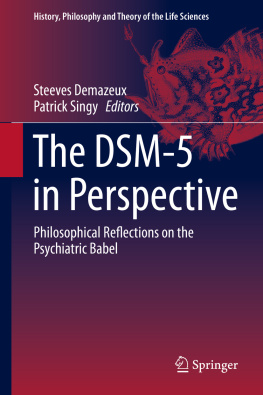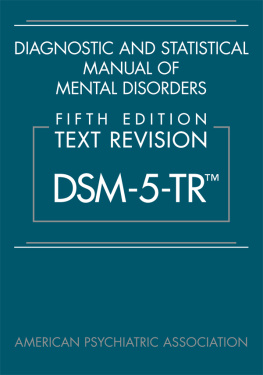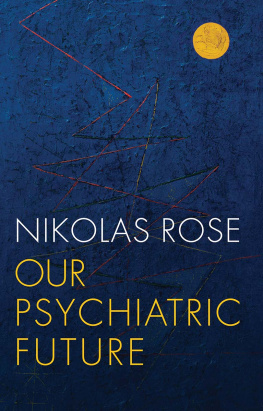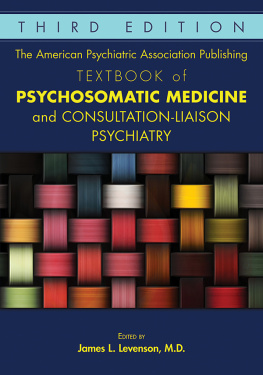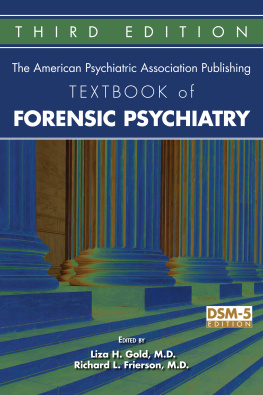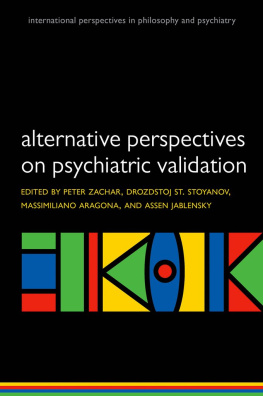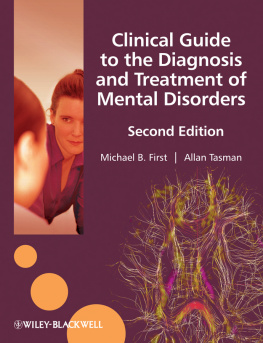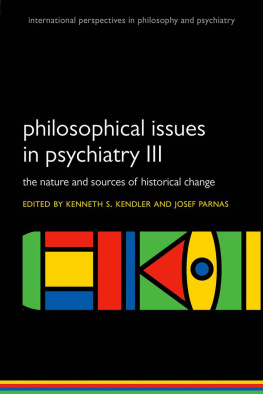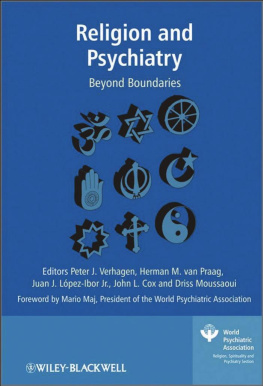Demazeux Steeves - The DSM-5 in perspective : philosophical reflections on the psychiatric Babel
Here you can read online Demazeux Steeves - The DSM-5 in perspective : philosophical reflections on the psychiatric Babel full text of the book (entire story) in english for free. Download pdf and epub, get meaning, cover and reviews about this ebook. year: 2015, publisher: Springer, genre: Romance novel. Description of the work, (preface) as well as reviews are available. Best literature library LitArk.com created for fans of good reading and offers a wide selection of genres:
Romance novel
Science fiction
Adventure
Detective
Science
History
Home and family
Prose
Art
Politics
Computer
Non-fiction
Religion
Business
Children
Humor
Choose a favorite category and find really read worthwhile books. Enjoy immersion in the world of imagination, feel the emotions of the characters or learn something new for yourself, make an fascinating discovery.
- Book:The DSM-5 in perspective : philosophical reflections on the psychiatric Babel
- Author:
- Publisher:Springer
- Genre:
- Year:2015
- Rating:4 / 5
- Favourites:Add to favourites
- Your mark:
The DSM-5 in perspective : philosophical reflections on the psychiatric Babel: summary, description and annotation
We offer to read an annotation, description, summary or preface (depends on what the author of the book "The DSM-5 in perspective : philosophical reflections on the psychiatric Babel" wrote himself). If you haven't found the necessary information about the book — write in the comments, we will try to find it.
Since its third edition in 1980, the Diagnostic and Statistical Manual of Mental Disorders (DSM) of the American Psychiatric Association has acquired a hegemonic role in the health care professions and has had a broad impact on the lay public. The publication in May 2013 of its fifth edition, the DSM-5, marked the latest milestone in the history of the DSM and of American psychiatry. In The DSM-5 in Perspective: Philosophical Reflections on the Psychiatric Babel, experts in the philosophy of psychiatry propose original essays that explore the main issues related to the DSM-5, such as the still weak validity and reliability of the classification, the scientific status of its revision process, the several cultural, gender and sexist biases that are apparent in the criteria, the comorbidity issue and the categorical vs. dimensional debate.
For several decades the DSM has been nicknamed The Psychiatric Bible. This volume would like to suggest another biblical metaphor: the Tower of Babel. Altogether, the essays in this volume describe the DSM as an imperfect and unachievable monument a monument that was originally built to celebrate the new unity of clinical psychiatric discourse, but that ended up creating, as a result of its hubris, ever more profound practical divisions and theoretical difficulties.
Demazeux Steeves: author's other books
Who wrote The DSM-5 in perspective : philosophical reflections on the psychiatric Babel? Find out the surname, the name of the author of the book and a list of all author's works by series.

